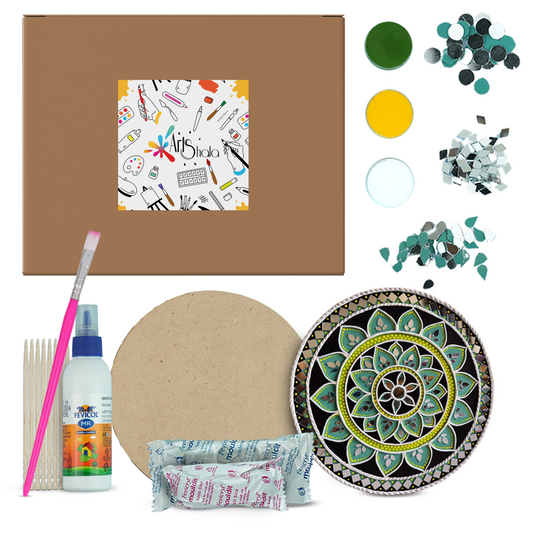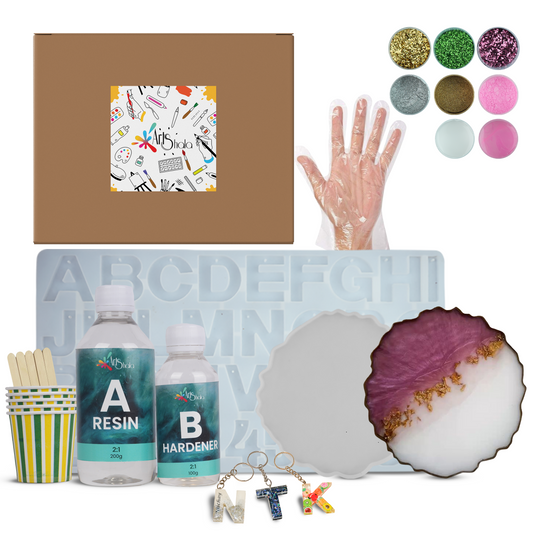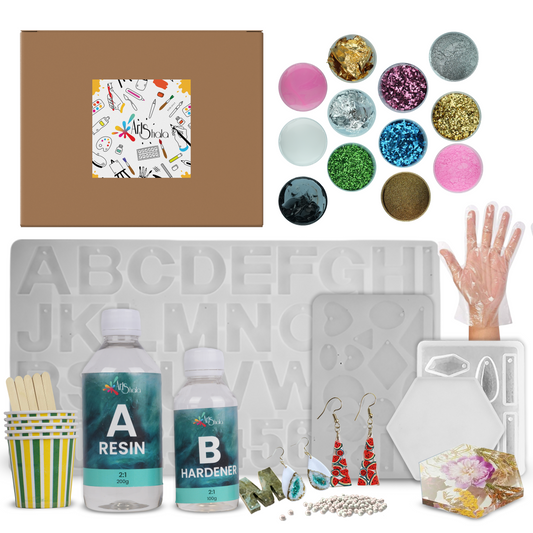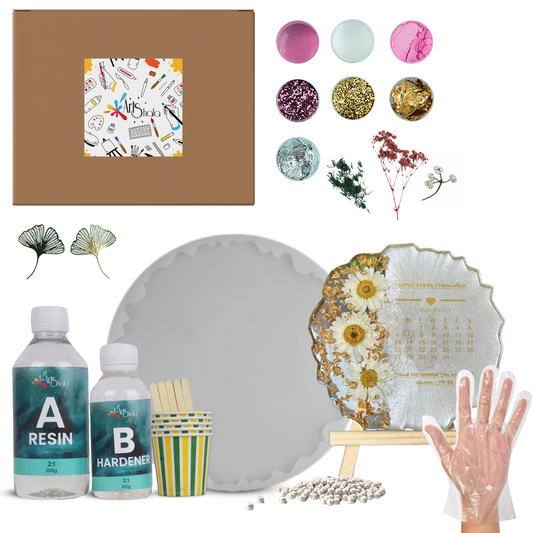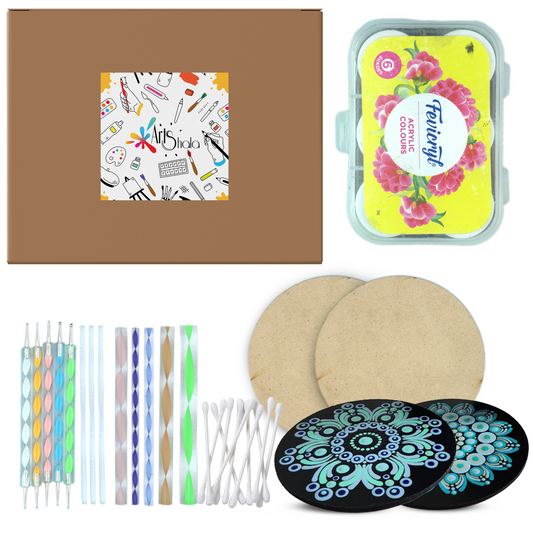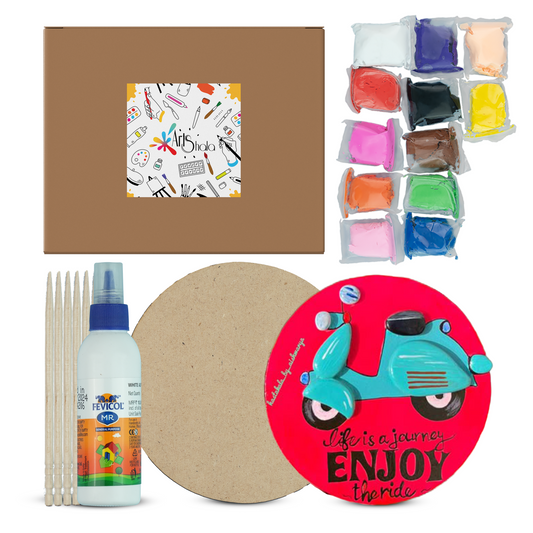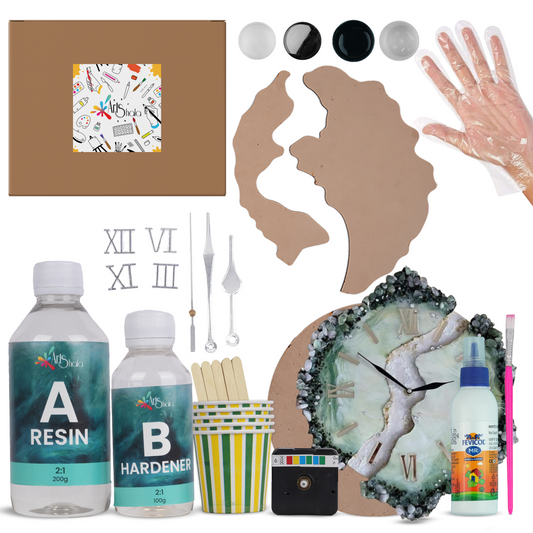The Sticky Situation: Dealing with Resin Leakage in Art Projects
With its remarkable clarity and versatility, resin has become a beloved material for artists and crafters. However, even the most meticulous crafter can encounter the dreaded resin leak. This sticky situation can not only mar the aesthetics of your artwork but also cause frustration and wasted materials. Fear not, creative minds! This comprehensive guide equips you with the knowledge to prevent and address resin leakage in your art projects, ensuring a smooth and successful creative journey. We recommend joining a resin art workshop to learn this topic under professional guidance.
Why Do Resin Leaks Happen?
Before tackling solutions, let's talk about the common reasons behind resin leakage:
- Improper Mixing Ratio: An inaccurate ratio of resin and hardener disrupts the proper chemical reaction that facilitates curing. This can lead to incomplete curing, leaving the resin soft and prone to leakage.
- Mould Breaches: Cracks, gaps, or imperfections in your mould can provide escape routes for uncured resin, resulting in leakage during the curing process.
- Overfilling Moulds: Pouring resin beyond the capacity of your mould is a surefire recipe for leakage. Leave enough headspace in the mould to accommodate resin expansion during curing.
- Incorrect Curing Conditions: Deviation from the recommended temperature or time can affect the process. Inconsistent or insufficient curing can leave the resin uncured or weak, leading to leakage.
- Resin Viscosity: Certain resins, particularly those with lower viscosity, may be more prone to seeping through minuscule gaps or imperfections in the mould.
Proactive Strategies for a Clean Project
An ounce of prevention is worth a pound of cure, especially regarding resin leakage. Here are some proactive steps you can take to minimise the risk:
- Precise Measurements: Always meticulously measure your resin and hardener using accurate measuring tools. Invest in high-quality graduated beakers or syringes to ensure you achieve the exact ratio specified by the resin manufacturer.
- Double-Check Your Mould: Thoroughly inspect your mould for any cracks, holes, or imperfections before pouring the resin. If you find any defects, repair or replace the mould to prevent leakage.
- Leave Headspace: Don't fill your mould to the brim! Leave sufficient headspace to accommodate for resin expansion during curing. Consult the mould's specifications or the resin manufacturer's recommendations for the appropriate headspace allowance.
- Maintain Curing Conditions: Create a controlled environment for curing your resin project. Adhere to the recommended curing temperature range and time specified by the resin manufacturer. Consistent temperatures are crucial for proper curing and minimising leakage.
- Consider Resin Viscosity: If you're concerned about leakage, opt for resins with a higher viscosity. Thicker resins are less likely to seep through tiny gaps or imperfections in the mould.
Strategies for Damage Control
Even with the best precautions, leaks can sometimes occur. Here's what you can do to address them:
- Immediate Action: Act swiftly upon noticing a leak. The sooner you contain it, the less mess you'll have to deal with.
- Contain the Leak: Depending on the severity of the leak, use appropriate tools like gloves, cloths, or tape to prevent further spillage and contain the leaked resin.
- Clean Up Promptly: While the resin is still uncured, use solvents like acetone or denatured alcohol (consult the resin manufacturer's recommendations for compatible solvents) on a rag to wipe away the leaked resin. Be mindful of proper ventilation when using solvents.
- Address the Cause: Identify the root cause of the leak, whether it's an improper mixing ratio, a mould defect, or overfilling. Take corrective measures to prevent similar issues in future projects.
- Salvaging the Project (Optional): Depending on the extent of the leak and the type of art project, you can salvage it. Assess the situation and determine if you can carefully remove the leaked resin or incorporate it into the final artwork creatively.
Choosing the Right Tools for the Job
Having the right tools on hand can significantly aid in preventing and addressing resin leaks:
- Mixing Tools: Invest in high-quality graduated beakers or syringes for accurate resin and hardener measurement.
- Mould Release Agent: Applying a mould release agent can help prevent the resin from adhering to the mould, making it easier to remove the cured piece and minimising the risk of mould breaches during demolding.
- Disposable Gloves: Wearing gloves protects your hands from resin and facilitates easier cleanup in case of leaks.
- Safety Glasses: Protect your eyes from splashes or fumes when using resin and solvents.
- Respirator: Consider using a respirator, especially when working with solvents or in poorly ventilated areas.
- Paper Towels and Rags: These are essential for wiping up spills and cleaning leaked resin. Opt for lint-free cloths to avoid leaving behind fibres in your project.
- Drop Cloths or Plastic Sheeting: Protect your workspace from potential drips or spills with a drop cloth or plastic sheeting.
Bonus Tips for Leak-Free Success
Here are some additional pointers to ensure a smooth and leak-free resin crafting experience:
- Practice Makes Perfect: As with any art form, practice is key. Begin with smaller projects to refine your techniques and gain confidence before tackling larger creations.
- Test Pours: Consider performing a test pour with a small amount of resin to ensure your mixing ratio, mould integrity, and curing conditions are optimal before committing to your final project.
- Work in a Well-Ventilated Space: Proper ventilation is crucial when working with resin and solvents. Open windows or use a ventilation fan to ensure proper air circulation.
- Safety First: Always prioritise safety when working with resin. Wear appropriate personal protective equipment and follow the manufacturer's safety instructions meticulously.
- Embrace the Learning Curve: Resin crafting is a journey of continuous learning. Don't be discouraged by setbacks. View them as opportunities to learn and improve your skills. A wealth of online resources, tutorials, and communities is dedicated to resin crafting. Utilise them to expand your knowledge and connect with fellow enthusiasts.



